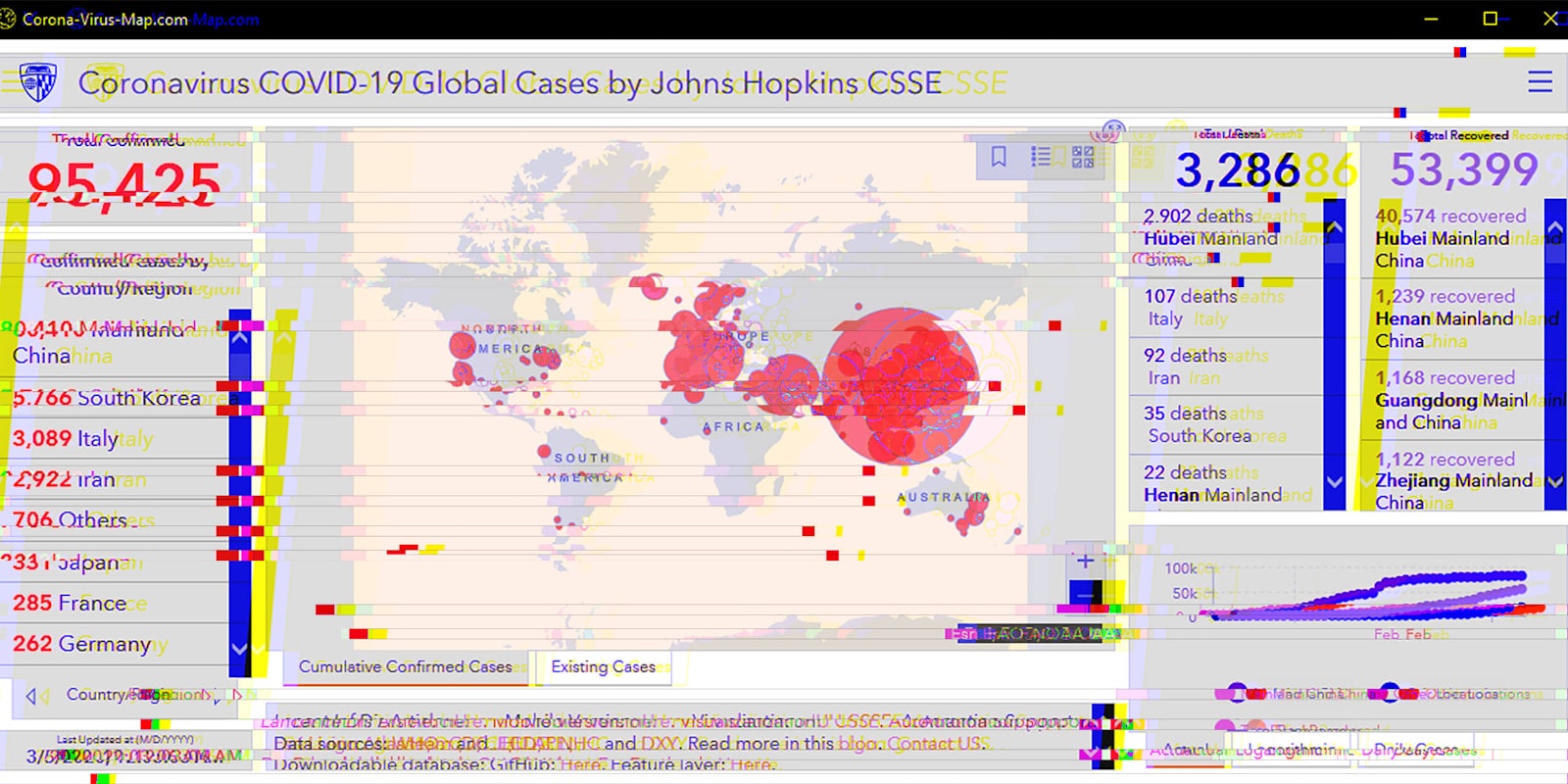Fake versions of coronavirus maps designed to look like officials ones, and that contain malware, are floating around the internet, researchers and the U.S. government has warned.
One fake map looks like an official one from John Hopkins University, according to one report.
Earlier this week, researchers at Reason Labs released a report that found bad actors have used the interest online in the spread of the virus to push malware disguised as a “Coronavirus Map.”
The malware, according to Reason Labs researcher Shai Alfasi, is designed to steal usernames, passwords, credit card numbers, and other information that could be stored in a user’s browser.
The malicious map asks users to download an application which then infects a computer with the malware.
“As the coronavirus continues to spread and more apps and technologies are developed to monitor it, we will likely be seeing an increase in corona malware and corona malware variants well into the foreseeable future,” Alfasi wrote in the Reason Labs report.
Meanwhile, U.S. Health and Human Services (HHS) warned employees on Wednesday about a fake coronavirus mapping website that was pretending to be an official one from John Hopkins University, CNN reported on Thursday morning.
The agency sent an email to employees, where it describes a malware similar to the one outlined by Reason Labs. HHS added in the email that “our cybersecurity team is working with numerous stakeholders to ensure this map is taken offline,” according to CNN.
On Wednesday, the World Health Organization officially declared the coronavirus a pandemic, which is likely to prompt more people to find out more about it—which could include looking for maps.
READ MORE:


